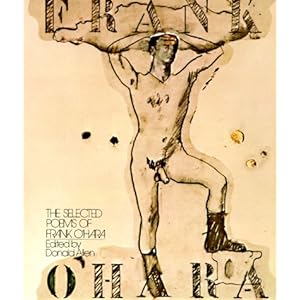
the power of the DIRTY DANCE/ART
When One Takes Baby Out of the Corner
the dirty dancing-- our coming of age story
I want to talk about the 1987 film Dirty Dancing--the sexy, dance flick/ coming age of tale of Frances "Baby" Houseman starring Jennifer Grey and the great, Patrick Swayze. Confession: I love all dance movies (Flashdance, Singing in the Rain, Footloose, Save the Last Dance, Billy Elliot, Mad Hot Ballroom, Black Swan, Grease, and even, oh!, Center Stage)-- these movies all signal dance, as the fundamental art-medium for the body, as a powerful force that leads to all kinds of important things: sex, social justice, violence, political action, hysteria, self-revelation, interracial relationships, conflicts, suicides, visions, love, body dysmorphic disorder, etc.) Dance-- and all it's iterations--is where the body goes to be human.
Most pop movies depict the Artist as a manic, selfish, and unpractical outcast doomed to the edge of the world-- . But dance movies generally provide an uplifting message for the artist; they say, YES!, wreck our world. we want it. give us the chaos. lets live in the dirt and grime of your art.
Nothing makes this more clear than Dirty Dancing. I think of the opening, when "Baby" is introduced as a happy young woman, "in love" with her dad, the doctor, and soon to be attending college and the Peace Corps. Set in the late 1960's in a high-end resort in the mountains, everything is idyllic and peaceful. Nothing could be better...
UNTIL! Baby meets the ARTIST-- Johnny Castle, in all his artsy cliches. (uh... Castle... a real "dreamer). He's poor, he's rebellious, he's disliked by "the man", and he's sexually alive. Baby's first encounter with Johnny happens by accident (chance?) as she wanders around the resort and secretly overhears a staff meeting where the owner explains to his wait staff to flirt with the daughters, "even the dogs." Johnny and his dance crew, however, are to keep their "hands off" for who knows what the power of their artsy hands could do.
PARANOIA DANCE

Later in the movie, Baby, the ever-wanderer, gets lost again and finds herself in Johnny's den of dance-- a shack even further into the woods. Here's where the good stuff starts happening-- the movie's colorful (brown) characters suddenly appear, the music gets better, and Baby is bewitched. The power of her gaze in this scene is so strong the causality is ambiguous. Who is causing who to move? Through exposition, it comes to light this DIRTY DANCE is happening all over American basements. Kids, infected with the dance, are just grinding and humping each other all the time. Baby, however, having been sterilized by the world and only interested in do-gooder stuff has missed the dance plague. But! Overcome by Johnny's power and the aura of the dance or her own internal bewitching, she plunges hips first toward the dance. She wants to get dirty! (Can we pardon/re-read the fetishing/animalizing of black and hispanic people in this scene??)
Stereotypes aside, the movie's genius is in how it positions the world and art; the artist, as a participant in the world's most corrupt activities, a marginalized figure, an unproductive and decadent member of society is more pivotal and vital than those who live a more traditionally rich and "successful" life. This is not because they contribute to culture or art, but because they unrest and unruly the environment. Dance, sorry, I mean DIRTY DANCE is the way to true pleasure and happiness, while college, world-peace, success, family, etc. are false avenues. When you think of every conventionally successful character in the movie-- be it the doctor dad, the rapist college grad, the sterile emotionless mom, or the bigot resort owner-- the movie advocates for being a degenerate. which is kind of awesome.
Perhaps even more interestingly, is that the movie never advocates for balance or a medium between the rich, sterile life of the professional and the dirty life of the artist. There is no suggestion that Baby will be continuing to DIRTY DANCE during the summers of her college years or as a minor hobby while she interns. Or that Johnny will now be taking classes at the local community college so he can be rehabilitated. Remaining marginalized, outcasts is what keep the artist alive. The movie's final scene, the artist coming center stage and sharing the DIRTY DANCE with the resort-ists is a bit complex. The film suggests that everyone can DIRTY DANCE but after a few shots of old people trying to grind, it becomes clear that this is just a show. The real DIRTY DANCE will always be located in the deep, dark woods. (Notice, too, how the Owner asks "Do we have sheet music for this stuff?"-- already trying to contain the dance plague.)
I like to think that Baby and Castle will run off in his old car and continue reeking havoc in all the surrounding mountain towns, rubbing their genitals on each other and everything that comes their way, infecting the world with DIRTY DANCE, hoping to drag them into the fest of sickness and drama of art.





